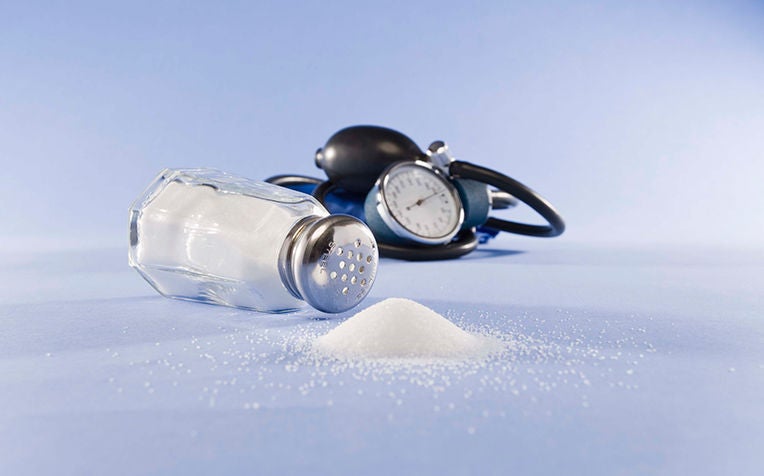HealthXchange will NEVER ask you to transfer money over a call. If in doubt, call the 24/7 ScamShield helpline at 1799, or visit the ScamShield website at www.scamshield.gov.sg.

Sodium is necessary for your body to function, but too much of it stresses out your heart!
Salt (sodium): how much is too much?
Sodium is a naturally occurring mineral and a key component of salt. The more you eat out, or buy processed foods from the supermarket, the higher your chances of consuming an unhealthy amount of sodium.
Sodium is essential for bodily functions. It helps in:
- Maintaining the balance of fluids in the body
- Transmitting nerve impulses
- The contraction and relaxation of muscles
"However, the body requires only small amounts of this mineral. The daily recommended allowance of sodium is less than 2000 mg or about 1 teaspoon (5g) of salt," says Mr Gary Chiah, Senior Dietitian, Department of Dietetics, Singapore General Hospital (SGH), a member of the SingHealth group.
8 in 10 in Singapore eat too much salt
Unfortunately, many people in Singapore – about 8 in 10 – like people in other countries, consume an excessive amount of sodium.
“According to the Health Promotion Board, individuals in Singapore are consuming approximately 8.3g of salt per day or about 1.5-2 teaspoons of salt, which is similar to the West but lower than in Japan. This is a lot more than we require,” adds Mr Chiah.
How sodium is linked to high blood pressure and heart disease
The kidneys work to balance the level of sodium in the body, holding on to the mineral if its level is low, and excreting it when there is an excess. When you consistently consume more sodium, the kidneys are unable to eliminate the excess and it builds up in the blood. The nature of sodium is to attract and hold water, so excess sodium causes an increase in blood volume.
Due to the increase in blood volume, the heart has to work harder to move blood through the body. This increases the pressure in the blood vessels. High blood pressure results and it can lead to complications such as heart disease, kidney disease and stroke.
“With excess sodium, the blood pressure will increase. High blood presure can cause blood vessel damage and in turn, these damages will be ‘patched up’ by the accumulation of cholesterol. As the accumulation thickens, it may reduce or block off the blood supply. This blockage may lead to heart disease, stroke, or kidney disease,” says Mr Chiah.
Read on to get tips on how to cut back on salt to prevent high blood pressure.
Ref: S13
Contributed by
Related Articles
Public Events
Get the Health Buddy App
© 2025 SingHealth Group. All Rights Reserved.


















 Get it on Google Play
Get it on Google Play